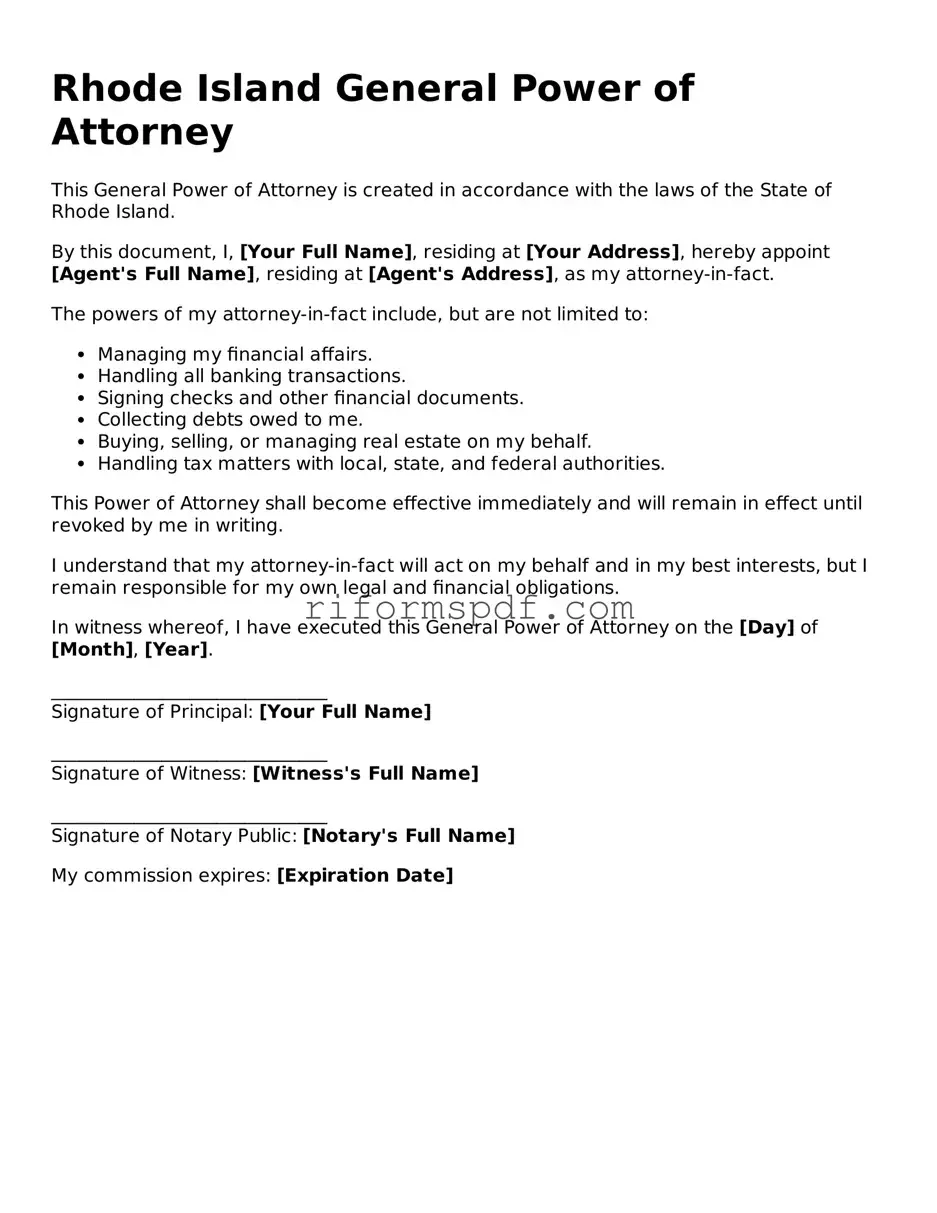Printable General Power of Attorney Form for Rhode Island
The Rhode Island General Power of Attorney form is a legal document that allows one person to grant another person the authority to make decisions and act on their behalf in various matters. This form can be crucial for managing financial affairs, making healthcare decisions, or handling property transactions when the individual is unable to do so themselves. Understanding how this document works can help ensure that your wishes are respected and your affairs are managed effectively.
Launch Editor

Printable General Power of Attorney Form for Rhode Island
Launch Editor
Finish the form now and be done
Edit General Power of Attorney online and skip the paperwork.
Launch Editor
or
⇓ PDF Form
